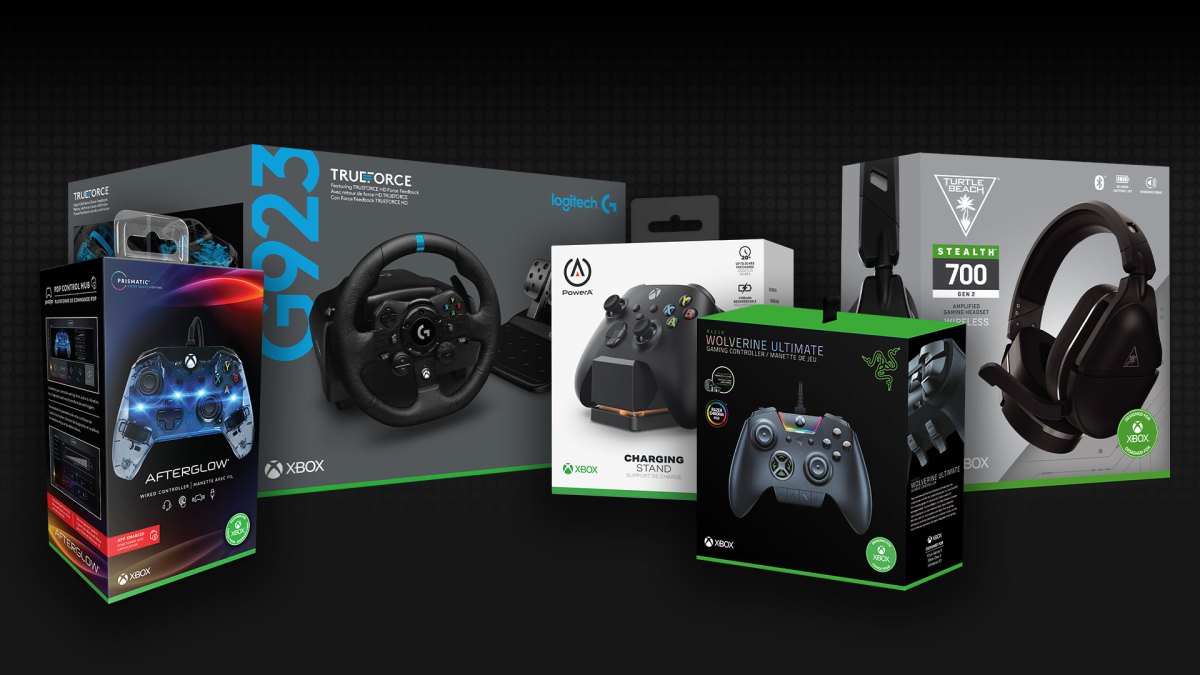Xbox Series X accessory compatibility revealed — and it's good news
A 'Designed for Xbox' label will help players select Xbox Series X accessories

Microsoft has been admirably clear about the compatibility of Xbox Series X accessories: If something worked on the Xbox One, it will probably work on the Xbox Series X.
Newer accessories will make this clear with a “Designed for Xbox” label right on the box. Any “Designed for Xbox” gear you buy — from headsets to controllers to racing wheels — will function just as well on the Xbox Series X as on the Xbox One.
In fact, there’s only one thing keeping older Xbox One gear from functioning at full capacity on the Series X: the presence of an optical audio port.
- Xbox Series X release date, price, pre-orders, specs and games
- PS5 vs. Xbox Series X: Specs, price, exclusives and more
- Plus: Nvidia GeForce RTX 3080 revealed: Release date, price, specs and pre-order
This information comes from an Xbox Wire post by Alex Nunn, senior program manager for Xbox. Nunn cited what he called “continuous compatibility” to explain how the best Xbox Series X accessories may be the ones you already own.
“If you have a favorite Xbox One accessory, like a SteelSeries headset that fits just right or a Thrustmaster Wheel you want to put more mileage on, you’re in luck!,” he wrote. “Designed for Xbox is working hard with our partners to ensure continuous compatibility across as may products as possible.
“Any officially licensed Xbox One accessory that connects to your console wired or wirelessly via USB will work on Xbox Series X," Nunn said. "Additionally, any headsets that connects (sic) via your Xbox Wireless Controller’s 3.5 mm port will also be supported.”
No connectivity protocol changes
This is pretty much in line with what we’ve heard before. Microsoft hasn’t changed any of its connectivity protocols for the Xbox Series X, so just about any licensed accessory for the Xbox One will continue working just fine. (As for Xbox 360 accessories, they generally used different connection profiles, and it’s not likely that they’ll work, save for 3.5 mm headsets.)
Sign up to get the BEST of Tom's Guide direct to your inbox.
Get instant access to breaking news, the hottest reviews, great deals and helpful tips.
Of particular note is the fact that wireless Xbox One headsets will continue to work on the Xbox Series X. The Xbox One uses a very different wireless protocol from the PC, PS4 and Switch dock, meaning that Xbox headsets aren’t generally compatible with other platforms and vice versa.
For better or for worse, Microsoft will keep the Xbox One’s unusual wireless protocol for the Xbox Series X — good news if you already own a wireless Xbox One headset, and bad news if you own something for the PC or PS4.
Losing the optical audio port
The one big exception, as mentioned above, is for accessories that rely on optical audio ports, as the Xbox Series X won’t have one. They may not stop working completely, but their functionality will probably become much more limited.
“Some gaming headsets that utilize an optical cable may require a firmware update to support game and chat audio over USB on Xbox Series X,” wrote Nunn. “Soundbars and headsets that do not receive updates may be connected directly to your television's optical port.”
This, of course, assumes that accessory manufacturers will issue firmware updates for older devices — many won’t — and that all televisions have optical audio ports — many don’t.
Beyond that, Nunn listed a variety of accessory partners for the Xbox Series X, including Bang & Olufsen on sound tech, Cable Matters on cables (naturally) and OtterBox on “a holistic portfolio of accessories,” whatever that means.
Marshall Honorof is a senior editor for Tom's Guide, overseeing the site's coverage of gaming hardware and software. He comes from a science writing background, having studied paleomammalogy, biological anthropology, and the history of science and technology. After hours, you can find him practicing taekwondo or doing deep dives on classic sci-fi.

